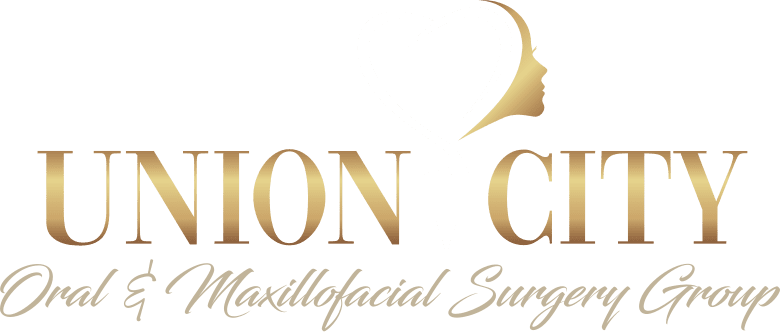You may have wondered about the benefits and disadvantages of dental implants if you have one or multiple missing teeth. After losing a tooth, everyday activities such as eating, talking, and sometimes even smiling can begin to feel uncomfortable. If you are starting to consider dental implants, it is important to know the advantages and disadvantages that this treatment has to offer.
The dental implant procedure involves several stages, including preparation, the surgical placement of the implant, and the recovery period. It is crucial to find an experienced oral surgeon to ensure the success of the procedure.
Dental implants may be one of the most effective options for those who are suffering from tooth loss. Speak to an experienced oral and maxillofacial surgeon at Union City Oral and Maxillofacial Surgery Group for a careful evaluation of your missing teeth to assess whether dental implants are the best option for you.
The Pros of Dental Implants
There are multiple advantages to moving forward with dental implants. One of the dental implant pros you must first consider is whether they are easy to take care of. The good news is that you take care of them the same way you do your natural teeth with regular flossing, brushing, and dental checkups.
Natural teeth dental implants resemble natural teeth in look and feel, providing functional benefits and a convenient solution for tooth loss.
The following are additional pros of dental implants to consider:
Dental Implants May Be a Lifelong Solution
Dental implants may be a lifelong solution to missing teeth because they last decades, and the failure rate of this treatment is extremely low. Dental implant procedures are known for their technical precision and predictable outcomes. Unlike crowns that may need to be replaced every ten years, this is the most proven and effective treatment for missing teeth in the dental industry.
Implants Mimic the Look and Feel of Real Teeth
One of the most considerable advantages of dental implants is the look and feel of the replacement tooth. They are a holistic and non-invasive solution that mimics your actual teeth. Once the implant has been fitted and measured to your smile, you’ll have difficulty telling your implant and your real teeth apart. Additionally, they will allow you to eat and drink any foods that you like without special consideration.
Dental Implants Are Cost-Effective
Considering that dental implants are a lifelong solution and you don’t have to worry about replacements, the cost of treatment is cost-effective in the long run.
Dental insurance can play a significant role in covering the cost of dental implants, but coverage can vary widely depending on the provider and specific plan.
There Are No Limits to Dental Implants
With dental implants, you may use one to four implants to support a single crown to a full arch denture. Unlike dentures, dental implants require less maintenance, feel more natural, allow for easier eating and chewing, and have a longer lifespan. This treatment is extremely durable and holds more weight than the average natural tooth. You may not need a dental implant for every tooth that’s missing.
Dental Implants May Prevent Bone Loss
Bone loss dental implants are anchored into your jaw, with the screw acting as a root of a natural tooth to prevent bone loss in the area and keep your jawbone strong. Without this treatment, the bone at the site of the missing tooth can start to disintegrate.
The Cons of Dental Implants
Although there are plenty of upsides to dental implant surgery, some disadvantages may outweigh the benefits of dental implants. Consider the following cons of treatment:
Implant surgery requires a thorough evaluation to determine if a patient is a suitable candidate, and it carries potential risks such as infection, nerve damage, and implant failure.
1. Dental Implants May Fail
The dental implant failure rate is low, only about 5%, and the majority of patients who undergo this treatment won’t experience any issues. However, maintaining good oral health is crucial for the success of dental implants. There is a minimal chance of failure that patients should be aware of that is exacerbated by conditions such as gum disease, insufficient jawbone, diabetes, rheumatoid arthritis, poor dental hygiene, and smoking.
During your initial assessment, your experienced oral and maxillofacial surgeon will determine if there is any risk of failure.
You Need Enough Bone or a Bone Graft to Qualify for Dental Implants
One disadvantage to consider is that you need enough jawbone to qualify for dental implants in order to anchor them in place. If you’ve had missing teeth for a long time, your bone may have disintegrated and may not be enough for the treatment to be successful. A bone grafting procedure may be necessary in some circumstances to add extra bone to the jaw, making implant placement possible.
3. May Be More Costly Up Front Than Other Treatment Options
It may be more costly upfront to move forward with dental implants than other treatment options like dentures. However, it is a one-time cost, as opposed to other treatments that may need replacement every few years.
4. The Process Can Be Time-Consuming
There are several phases of treatment that may make it seem like a time-consuming option. From the initial consultation to the surgical placements and healing time, you may have to make multiple appointments over the course of six months.
Contact the Skilled Oral and Maxillofacial Surgeons at Union City Oral and Maxillofacial Surgery Group
If you are considering moving forward with dental implants, speak with the experienced oral and maxillofacial surgeons at Union City Oral and Maxillofacial Surgery Group to assess whether this treatment is the right option for you.
Dental implants have many advantages that may restore confidence and offer a cost-effective solution to eating, talking, and smiling like before. If you are concerned with any disadvantages, Dr. Nancy Herbst will help you determine if you should move forward with treatment while offering the most effective techniques and state-of-the-art care so you may get the best results.
Contact us at (201) 601-9262 or fill out our appointment request form today.


